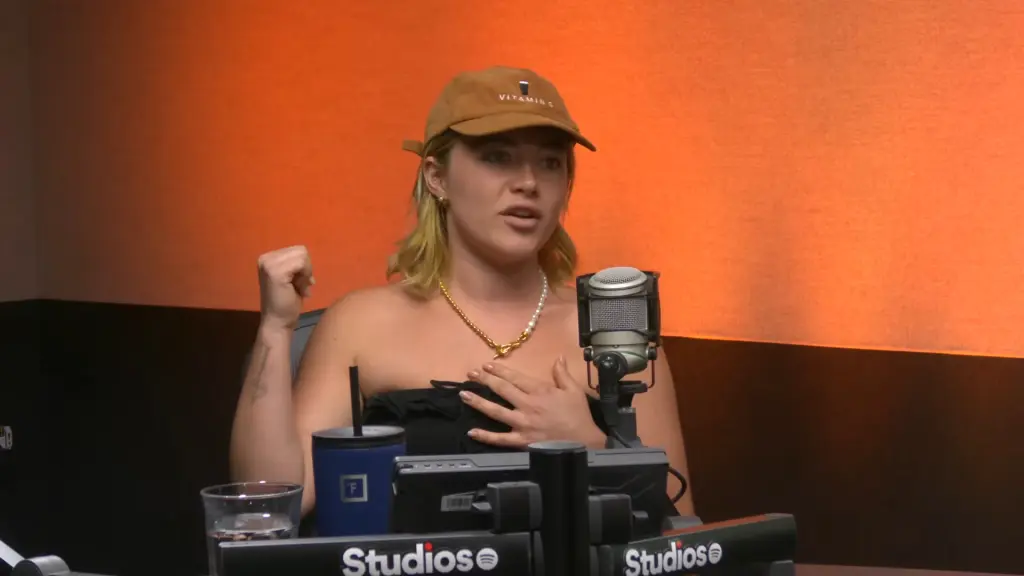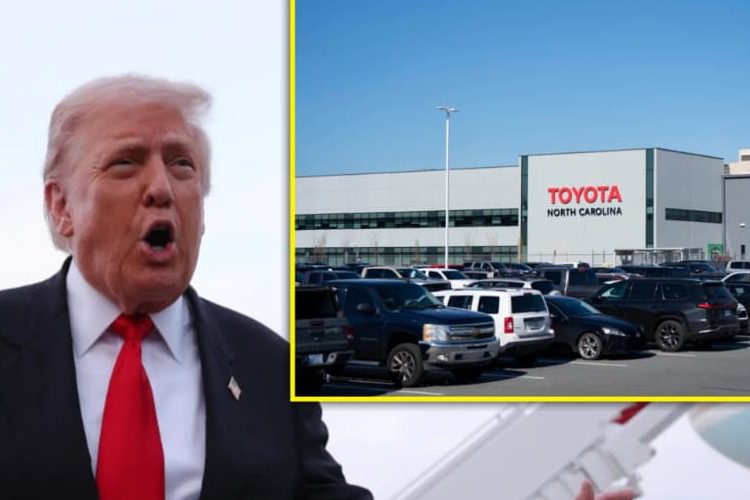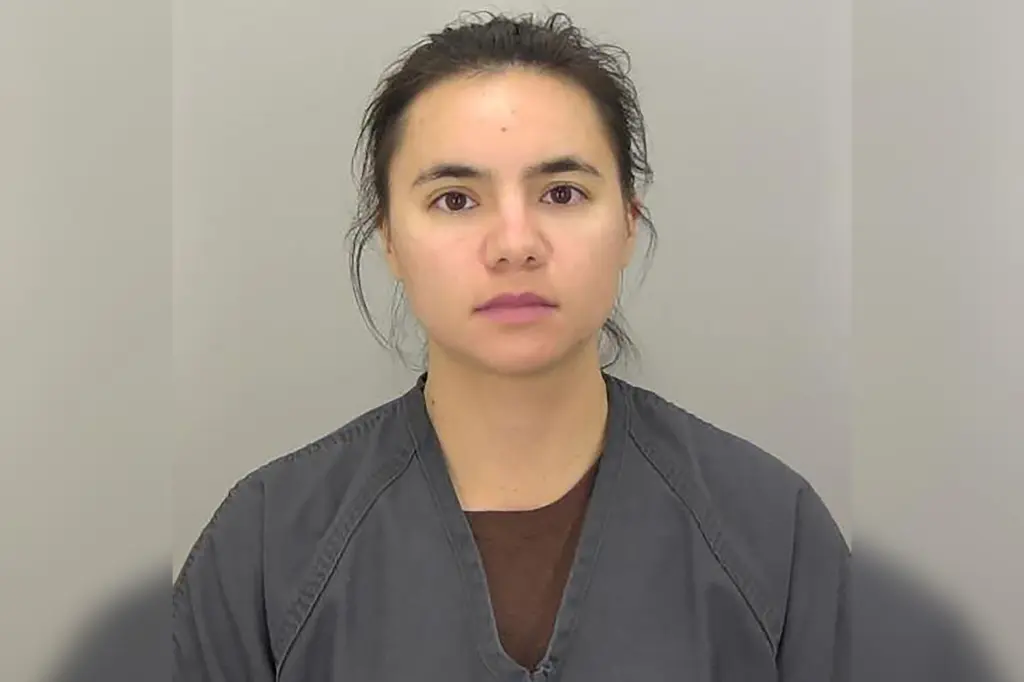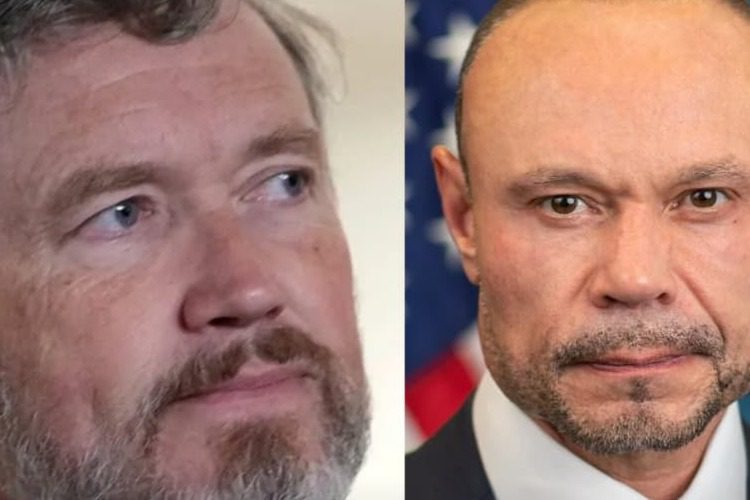Florence Pugh reveals disturbing behind-the-scenes stories from Hollywood sets — says some intimacy coordinators made filming “weird” and “awkward”
Florence Pugh has never been one to hide behind the polished veneer of celebrity life, and her latest comments prove exactly why she’s one of the most fearless voices in modern Hollywood. In a candid new interview on The Louis Theroux Podcast, the 29-year-old actress opened up about her uncomfortable experiences filming sex scenes — describing a mix of professionalism, progress, and deeply inappropriate moments that left her questioning the boundaries between performance and exploitation.
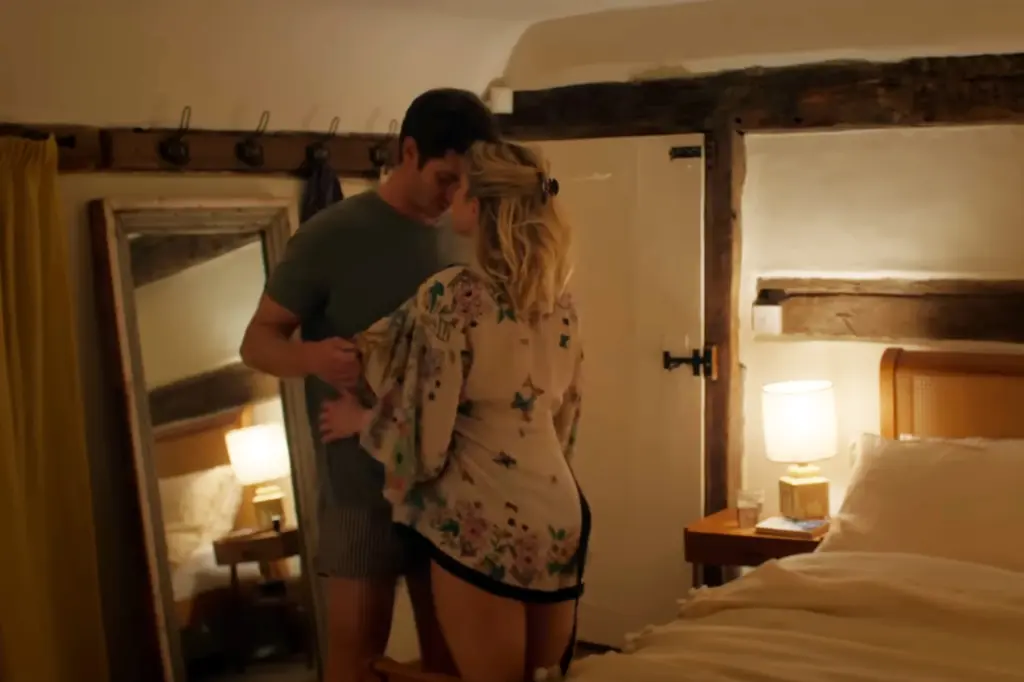
Speaking calmly but firmly, the Thunderbolts and Oppenheimer star said she’s seen both sides of intimacy coordination on film sets — from empowering collaborations to situations that crossed serious lines. Without naming names or specific projects, Pugh recounted being directed in ways that made her feel uneasy and objectified. “There are plenty of things that I remember where it was just completely inappropriate to have asked me to do that,” she told Theroux. “To have directed me in that way — it just wasn’t right.”
Her honesty cut through the conversation with startling clarity. Pugh’s words echoed a sentiment many in the entertainment industry have whispered for years but rarely dared to express so publicly. She revealed that while intimacy coordinators — professionals tasked with ensuring actors’ safety during love scenes — have improved things dramatically, the system is still far from perfect. “It’s a job that’s still figuring itself out,” she said. “There are really good ones, and there are some that just make everything weird and awkward.”
For context, intimacy coordinators became a standard presence on film and television sets after the #MeToo movement redefined workplace boundaries in Hollywood. Their role was to provide structure and safety when filming vulnerable scenes, ensuring that actors could perform intimate acts without pressure, fear, or confusion about what was expected of them. But, as Pugh described, not all coordinators fully understand the emotional nuance their job demands.
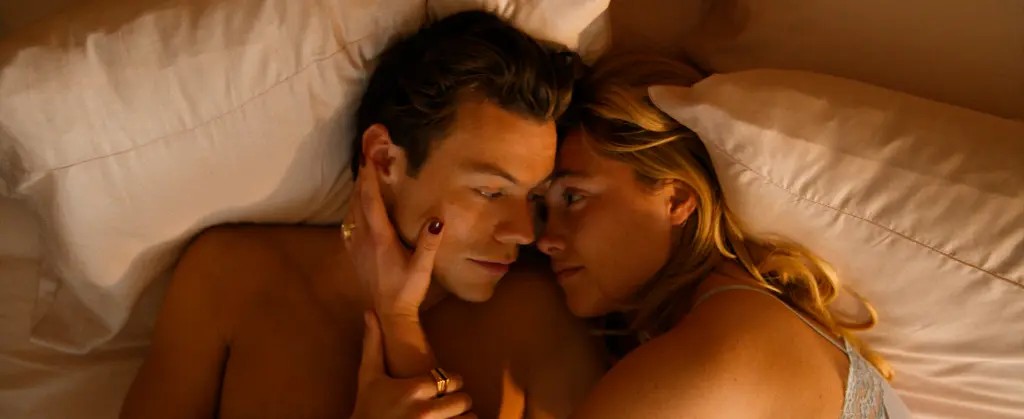
“I’ve had some amazing experiences where everything was talked through, where we understood what kind of intimacy the characters shared,” Pugh explained. “But then I’ve had the opposite — where someone just wants to be on set, inserting themselves into moments that aren’t theirs to control. It becomes uncomfortable instead of safe.”
Her frank admission didn’t come off as sensational or accusatory — instead, it reflected the quiet exhaustion of someone who’s seen the industry evolve but not quite arrive at where it needs to be. Pugh emphasized that she’s “always been quite happy in my skin” and “confident enough to make sure I’m heard,” yet even that didn’t always protect her from being placed in unsettling scenarios.
She described her earlier career experiences before intimacy coordinators became common. “I did a lot of my sex scenes before that was even a job,” she said. “And back then, you just went with whatever was being asked of you. There wasn’t this idea that someone should be there to check if you were okay.” That absence, she noted, often led to blurred boundaries between artistic direction and personal violation.
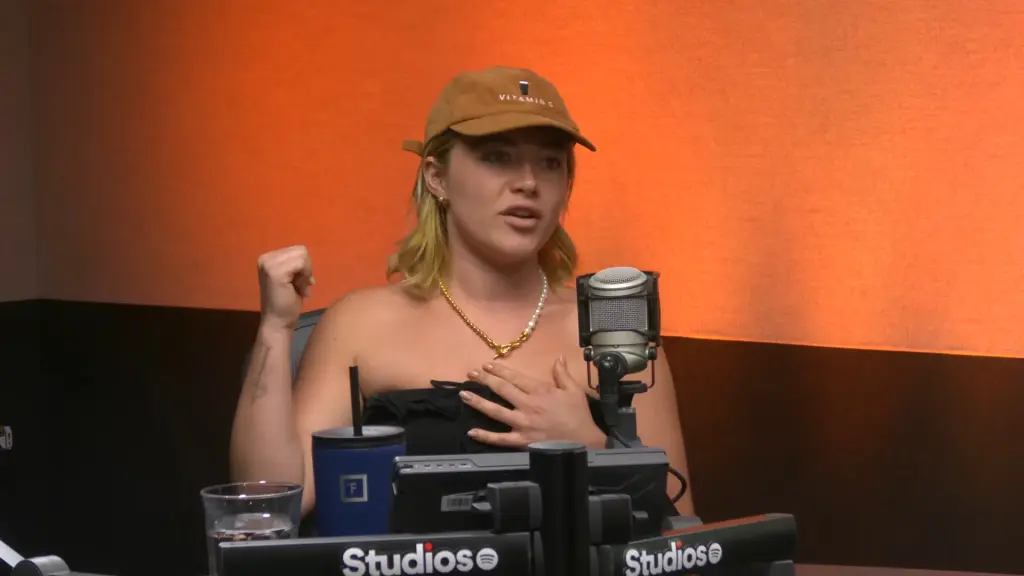
Her perspective is not an isolated one. Many actors, particularly women, have echoed similar concerns about the imbalance of power during intimate filming. What makes Pugh’s voice stand out is her authority — she is part of a new generation of actors who speak candidly about their working conditions and demand better industry standards. “When you have a good intimacy coordinator, it changes everything,” she said. “It feels choreographed, safe, and even creative. When you don’t, it feels like something else entirely.”
That “something else” is what she hopes the industry continues to confront. The actress didn’t shy away from acknowledging that, for all its progress, Hollywood still occasionally prioritizes visual spectacle over the emotional wellbeing of its performers. “Sometimes it’s not even about the story anymore,” she said with frustration. “It becomes about what looks sexy rather than what feels truthful to the characters.”
Her remarks immediately resonated online, particularly among fellow performers and film professionals. Within hours of the podcast’s release, social media was flooded with messages of support for Pugh’s bravery in addressing the topic so directly. Fans praised her for “putting words to what so many actors have felt but couldn’t say,” while others pointed out how her calm delivery lent even more weight to her message.

Louis Theroux, known for his gentle but probing interview style, handled the discussion with equal sensitivity. He asked whether she felt the industry was improving in this regard. Pugh responded thoughtfully: “Yes, definitely. The fact that we can even talk about this now shows progress. But it’s still uneven. It depends on the production, the people, and whether the intimacy coordinator is actually helping or just ticking a box.”
She explained that the best coordinators she’s worked with treat intimate scenes like a form of dance — a carefully crafted rhythm between two actors rather than an improvised act of exposure. “It’s choreography,” she said. “It’s about storytelling through touch and emotion, not about nudity for the sake of it.”
When describing her most positive experiences, she recalled how some coordinators worked closely with her and her co-stars to establish backstories behind the intimacy — asking questions like, “How long have these characters been together? What’s the emotional tone of this moment?” Those questions, she said, made a world of difference. “It turns something potentially awkward into something deeply human.”
Still, she couldn’t ignore the darker experiences — the moments when professionalism slipped, or when “completely inappropriate” instructions left her feeling exposed. Her account didn’t dwell on anger, but on disappointment. “I love this job. I love storytelling. But sometimes you just wish people remembered you’re a person first,” she said.
This mix of vulnerability and composure has long defined Florence Pugh’s appeal. Since her breakout role in Lady Macbeth (2016), she’s built a reputation as one of Hollywood’s most grounded yet daring talents. Whether embodying a grieving cult recruit in Midsommar, a complex romantic partner in Don’t Worry Darling, or the emotionally restrained Kitty Oppenheimer, she’s become synonymous with authenticity — a performer unafraid to expose raw human emotion on screen.
Her outspokenness about uncomfortable on-set experiences only deepens that image. “The camera can see when you’re pretending,” she said during the podcast. “If you’re uncomfortable, it shows. That’s why it’s so important to create an environment where everyone feels safe. The audience can tell when something’s wrong.”
Pugh’s reflections arrive at a moment when Hollywood continues to navigate the balance between creative freedom and ethical filmmaking. Since the introduction of intimacy coordination, many productions — from Euphoria to Normal People — have been praised for depicting sex with emotional intelligence and authenticity. Yet, as Pugh’s experience proves, the job still varies dramatically from one set to another.
In some cases, coordinators have reported being undermined by directors or producers who see their presence as interference. Others have spoken about budget cuts or resistance from older filmmakers unaccustomed to modern boundaries. Pugh’s story underscores that progress, while real, remains fragile — dependent on leadership, culture, and respect.
Industry analysts believe her comments could push studios to reevaluate how they train and vet intimacy professionals. “When someone of Florence’s stature speaks, Hollywood listens,” one casting director told Variety. “It forces everyone to ask: are we really doing this right, or just pretending we are?”
At its core, Pugh’s interview wasn’t about scandal — it was about evolution. It was about acknowledging how far Hollywood has come, while recognizing how much further it needs to go. She ended her conversation with Theroux on a reflective note: “You can have all the policies in the world, but if the people enforcing them don’t understand what intimacy means — emotionally, psychologically, not just physically — then it’s meaningless.”
Her tone softened, but her message stayed firm: “It’s not about shame. It’s about respect.”
With Thunderbolts and other major projects ahead, Florence Pugh continues to shape not only modern cinema but also the culture surrounding it. Her courage in addressing taboo industry issues — from intrusive direction to professional misconduct — reflects a generation unwilling to let silence be the standard.
In an industry often obsessed with perfection, her raw honesty might just be what Hollywood needs most.
